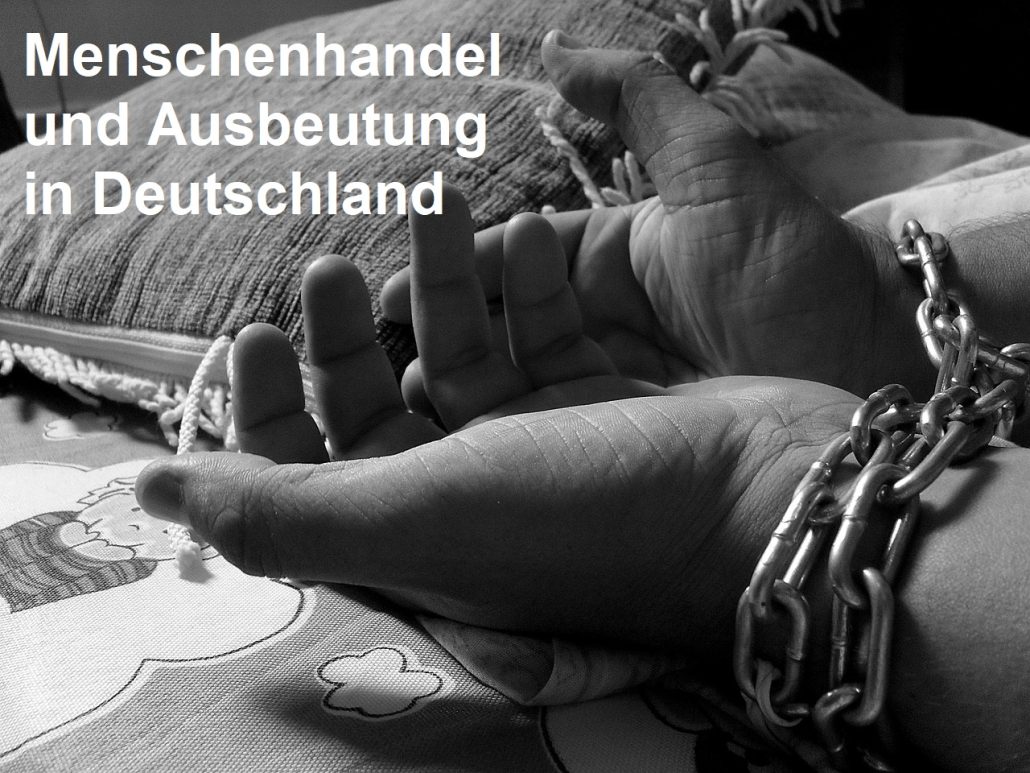Human Trafficking in Germany
Federal Situation Report 2022 Shows Sharp Increase in Sexual Exploitation and Labor Exploitation Proceedings
On September 11, 2023, the Federal Criminal Police Office (BKA) published the Federal Situation Report on Human Trafficking and Exploitation 2022. This shows the findings on the current situation and development in Germany with regard to human trafficking and exploitation.
Below we have summarized the most striking findings for you:
Sexual exploitation often through "lover method".
With a total of 346 proceedings, a sharp increase was recorded in the area of trafficking in human beings for the purpose of sexual exploitation (vs. previous year 2021: 291; +18.9%). Various penal norms were considered here: Trafficking in human beings, forced prostitution, exploitation by means of deprivation of liberty, exploitation of prostitutes, and pimping. In 199 cases, investigations were conducted on suspicion of forced prostitution. According to the BKA, one of the reasons for the sharp increase in preliminary proceedings compared to the previous year was that various German states (e.g. Lower Saxony and Rhineland-Palatinate) completed larger investigation complexes.
The total number of victims in the completed proceedings in the area of trafficking in human beings for sexual exploitation was 476, which represents an increase of 14.1% compared to the previous year (2021: 417). The clear majority (95.2%) of victims were female. The proportion of victims of European origin decreased slightly to 68.3% (2021: 71.7%). Almost a quarter of the victims were of Asian origin (23.7%).
As in the previous year, the most common modus operandi was the so-called "lover method." Here, the perpetrator leads his mostly young, female victim to prostitution by first feigning a love relationship, bringing his victim into an emotional dependency, and finally exploiting her financially. The number of suspects identified for suspected trafficking in human beings for sexual exploitation amounted to 488 in the reporting year (2021: 391). Just under a third of these (31.7%) were German nationals.
Labor exploitation often in meat industry and logistics
In the area of labor exploitation, a total of 34 proceedings were identified (+21.4% compared to the previous year). This corresponds to an all-time high in a five-year comparison (2018-2022). The high number of registered victims in these proceedings is particularly striking: A total of 1,019 victims were registered, which corresponds to an increase of +593.2%. This was due to two completed large-scale proceedings involving several hundreds of victims. The majority of the victims were exploited in auxiliary work in the meat industry as well as in the logistics sector.
Exploitation of minors
The number of proceedings with suspicion of exploitation of minors decreased by -27.8% compared to the previous year (2022: 171; 2021: 237). However, there were an above-average number of proceedings in 2021. The number from 2022 is therefore now back at the level of 2020 (178 proceedings). In this reporting year, too, the majority of proceedings (91.2%) concerned commercial, sexual exploitation of minors.
What is the situation in Europe?
The latest figures regarding human trafficking in Europe refer to the reporting year 2021, in which there was a 10% increase in registered victims of human trafficking, according to official European Union figures (2020: 6,534; 2021: 7,155). As in Germany, the most common form of trafficking in the EU was sexual exploitation, where the majority of victims (68%) were female. Labor exploitation was the second most common form of trafficking in the EU, which is steadily increasing. Looking at the victims of labor exploitation in the EU, the figures show that around 35% of the victims in 2021 were minors and 41% were not EU citizens.
However, the number of unreported cases of human trafficking in the EU and Germany must be assumed to be high. Since suspects often operate internationally, close police cooperation at the international level is needed to successfully combat human trafficking and exploitation. In addition, strong cooperation among all actors in law enforcement, the judiciary and specialized counseling centers is crucial.
At the 11th Zurich Anti-Money Laundering Conference on Sept. 26, 2023, Daniel Thelesklaf (head of the Financial Intelligence Unit Germany) pinpointed the financial sector's links to human trafficking on three points:
- Financial sector manages $150 billion in modern slavery assets
- The sector invests in companies that benefit from modern slavery and needs to examine this from an ESG perspective
- Banks can reduce the vulnerability of victims if they provide them with access to bank accounts. Daniel Thelesklaf has pointed out that it has been empirically proven that people without access to bank accounts are more vulnerable to exploitation.
Sources:
https://ec.europa.eu/eurostat/en/web/products-eurostat-news/w/ddn-20230208-2



